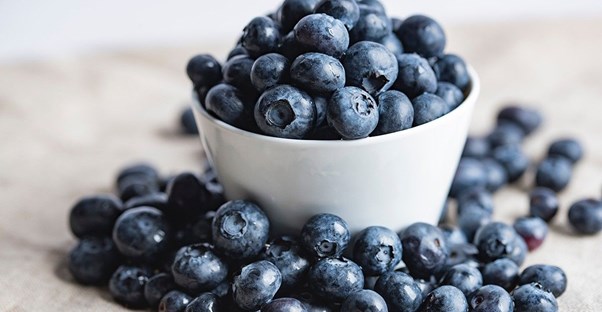Foods That Boost Your Brain and Memory
Alot Health > Diet

Having memory problems? Forgetting numbers and dates don’t have to happen. Maybe it’s the foods you’re eating. Turns out, a healthy diet is about more than keeping your muscles and bones going. Your brain also needs healthy food for the nutrients they provide. A cup of blueberries is great, but you could easily add more memory-boosting foods to your meal plans to ensure a spry brain.
These foods are scientifically proven to help your brain’s long-term and short-term memory, so stock up on these items. Some of these foods have even shown they could help stave off dementia! We’re not calling them miracle foods, but they certainly sound amazing.
It’s no surprise that fatty fish is good for you. However, those omega-3s are for more than just your heart! Omega-3 fatty acids naturally occur in oily fish in the form of EPA and DHA. These fats are essential for healthy brain function and memory (along with your bones and heart, of course).
A study in the Journal of Nutrition found that low DHA could speed up dementia deterioration while consuming higher DHA could slow early stages of progression. You can get this from salmon (my personal favorite), trout, mackerel, herring, sardines, and other oily fish. Flax seeds and pumpkin seeds are also a fantastic source for those who can"t stomach fish.
Need something more short-term? Grab an extra glass of coffee (or tea)! For those that need a quick boost of mental sharpness, consuming a little extra caffeine is your best bet. We’ve always known caffeine has been great for the mind, but until now, we haven’t known the true effect.
Johns Hopkins University research studied patients who were given 200mg caffeine tablets to see how they performed on image tests. The double-blind study discovered that those who had the caffeine enhanced their memory, but it also created strong enough memories to spot the differences between certain images. The study found 200mg is perfect, so try not to drink too much.
As more studies come out, it seems like eggs are perfect for numerous things, including the brain and memories. Eggs are chock full of homocysteine, which is a fancy name for certain B vitamins – B6, B12, and folic acid. A study from PLOS One found that those who consumed high doses of these vitamins had less brain shrinkage than those who didn’t.
As if that wasn’t enough, eggs also have a lot of choline. Choline is extremely important for your brain to function correctly. A study in Nutrition Review found that eggs had a heavy dosage of choline in its yolks, which was essential for the memory-boosting brain chemical acetylcholine. Long story short – eat more eggs.
Do you honestly need more reason to eat blueberries? It wouldn’t hurt! Blueberries are delicious, but they’re also brain-boosters. Tufts University researched blueberries and their effects on memory. It turns out that consuming these nutrient bombs were effective in improving (or delaying) short-term memory loss.
If you prefer, other dark red or purple fruits also had the same effect. That means you can also eat blackberries and vegetables like red cabbage to get the same effect. All of these delicious foods contain what"s called anthocyanins. These are antioxidants that have a wide range of health benefits from improving brain power in children (aged 7-10), decreasing inflammation, and even reducing cholesterol!
Nothing is better than a tomato sandwich, and you can feel good eating those yummy red fruits. Tomatoes have high amounts of lycopene, which is a powerful antioxidant that can help protect against free radical damage inside your body. Free radicals are nasty little buggers that can damage cells and contribute to dementia, especially Alzheimer’s.
The Journal of Nutritional Science looked at lycopene’s effect on cognitive function, and the results were good. It stated that the consumption of food high in lycopene could help preserve cognitive function (according to a study of over 16,000 nurses). It also said that low lycopene levels could increase the risk of dementia.
 Author
Shannon Sanford
Last Updated: May 18, 2021
Author
Shannon Sanford
Last Updated: May 18, 2021
Email: contact@about.com.vn - Phone: 818.333.007 - Website: Media Search Home
Copyright © 2007 - Noos. All rights reserved